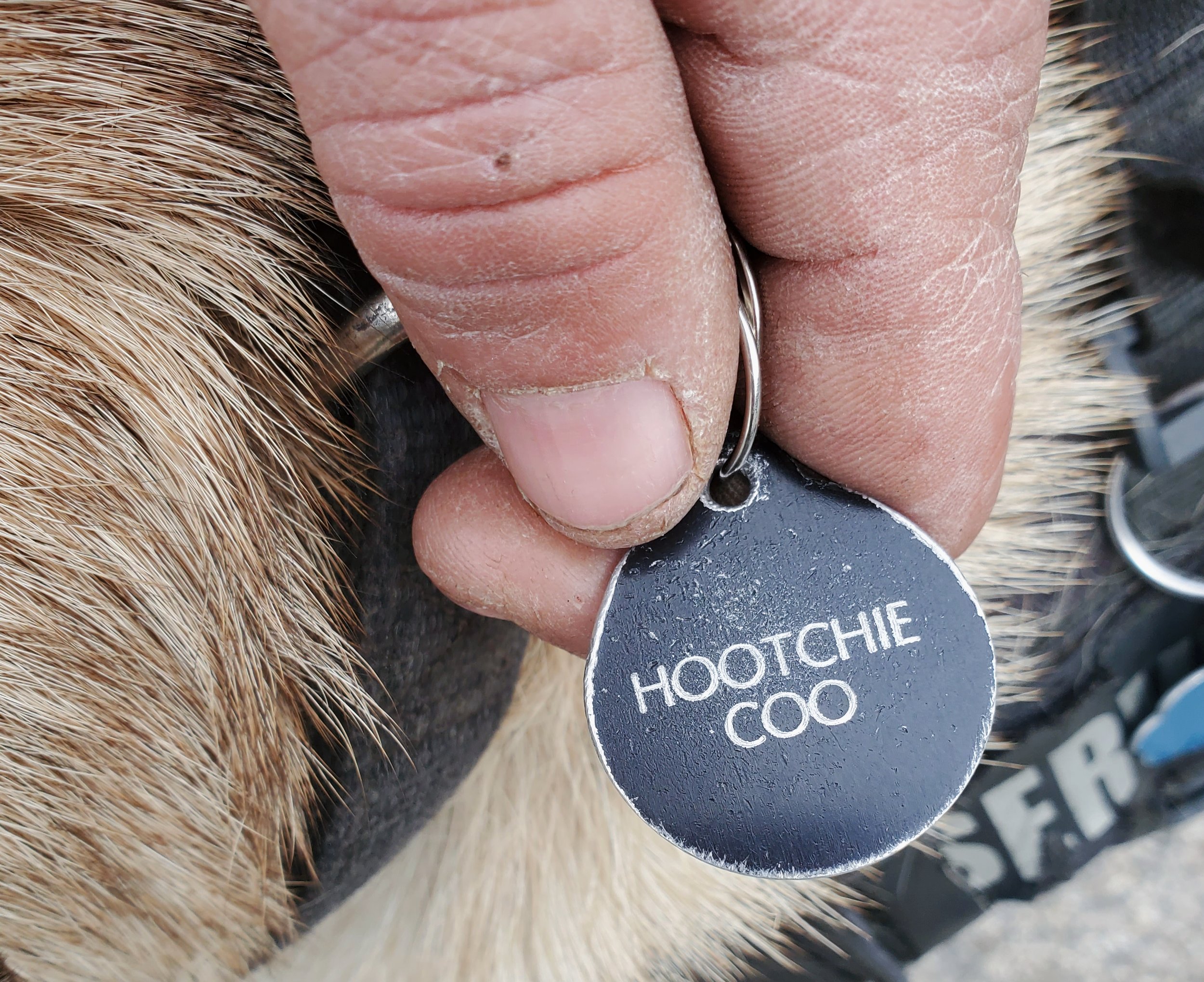Unhoused man braves cold for dog sweater
Written by Amaya Austin
Dec. 1, 2022 — Hootchie Coo, a large mixed breed with half an ear, is finding that his short tan coat isn’t enough for the chilly day.
But such is life on the streets.
For almost two years, Dave Evans, a 49-year-old homeless veteran, has used Hootchie Coo for protection. Paws for Patriots, a government program that trains and assigns animals for disabled veterans, issued Hootchie Coo as a security dog.
The two are not alone. As many as 25 percent of homeless people in America own a pet, according to a study by Feeding Pets of the Homeless. These pets are used as registered service animals, protectors and companions.
Evans is willing to wait in the near freezing temperatures for over an hour outside a homeless center in hopes of getting a doggie sweater for Hootchie Coo.
“Out here it's chilly, and he's shivering and shaking,” Evans said. “All I need is a little, size 10 boys hoodie for him, because he’s cold.”
After losing his first dog in an emergency surgery, Evans said he was eager to get another companion.
“When [Paws for Patriots] gave me Hootchie, man I was excited,” Evans said. “It felt like I was getting a part of my life back.”
Ever since, the pair have been braving the streets. Hootchie Coo prances alongside Evans on their way to another job.
Evans said he spends his days doing maintenance at local parks and homeless centers, and his evenings as night security for a recreational center. Anything to help him and Hootchie Coo survive.
“I ain't no broke down bum,” Evans said. “I don't want nothing from nobody. I want to earn it, you know? I'm here to work and do a good job.”
But Evans said the work isn’t always enough. He sometimes needs to seek outside help for him and Hootchie Coo.
“It plummets my morale,” Evans said. “If I ever ask somebody for something then I must really need it.”
Kristen Furleigh, marketing director at Feeding Pets of the Homeless, said, “These pets provide a buffer between the elements of society and the world that they're living in.”
Her organization, a national nonprofit that provides pet food, emergency veterinary care and animal supplies to pets belonging to homeless people, often donates supplies to soup kitchens and food banks.
“It's usually a place where people can also get their human foods,” Furleigh said. “So, for [homeless owners] it’s a one-stop shop.”
Furleigh said owning a pet is a lot of work.
“Pets give [homeless owners] this extra responsibility and something to care for. Something that's not just themselves,” Furleigh said. “These pets give them hope.”
Dr. Ally Honeycutt, an associate veterinarian at Lake Austin Blvd. Animal Hospital, said homeless owners can struggle to get their pet’s appropriate nutrients, preventative medications and transportation to a pet clinic.
“There are a lot of things that [homeless people] have to consider for their own health and their own care,” Honeycutt said. “Then trying to care for another animal, and factor that into things, it's probably very difficult.“
Honeycutt said animals without a shelter are more susceptible to illness and infections.
“Heartworm and fleas are abundant in humid and hot environments, especially lush ones, like Austin,” Honeycutt said. “All those [animals] are going to be at risk for parasites, including the life-threatening parasites and just really annoying ones.”
The weather also plays a role in pet safety, Honeycutt said. When temperatures drop, she said, fur doesn’t always protect animals from the cold.
“If you need a coat, they need a coat too,” Honeycutt said.
Lucy Fernandez, a program manager at Austin Pets Alive!, said keeping an animal safe and healthy is costly.
“Supplements and prescription food are ridiculously expensive,” Fernandez said. “If you've ever had a special needs animal you know prescription food is really, really pricey.”
Austin Pets Alive!, which runs the city’s no-kill shelter, also assists low-income and unhoused owners with taking care of their pets. Using donations, it provides veterinarian access and helps pay for other pet necessities.
“A lot of the time people are struggling paycheck to paycheck, and the economy is chaotically trashy and uncertain right now for a lot of folks,” Fernandez said. “Sometimes they just need pet food for their animals. Either they find a way to get it, or they have to surrender their animals. It's just not fair.”
Fernandez said most owners would do anything to protect their pets. “They’re your kids, they’re your sanity, they’re your peace of mind,” she said.
Evans said, for him, Hootchie Coo is home.
After patiently waiting, Evans finally clutched a thick plaid sweater packaged in a brand-new plastic casing.
Hootchie Coo’s tail perked up, as if he knew exactly what was inside.
“It feels good to be loved and cared about. You try to do the best you can, but it gets difficult at times,” Evans said, as tears welled up in his deep brown eyes.
Several thank-you’s and God blesses later, the two were back on their feet and heading off to the next job. Only this time, a bit warmer.
